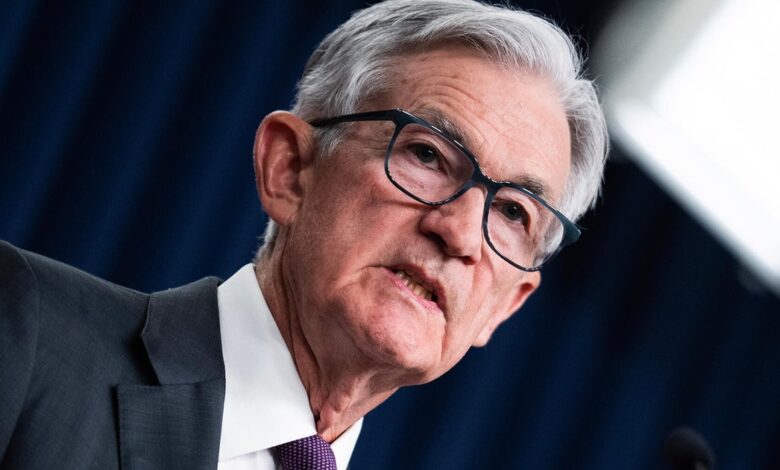Fed’s Powell says tariffs could lead to inflation, economic slowdown

As Federal Reserve Chair Jerome Powell addressed the Economic Club of Chicago, he expressed concerns about managing accelerating inflation and a slowing economy due to President Trump’s tariffs. Powell emphasized that the impact of the tariffs has been larger than anticipated, leading to higher inflation and slower growth.
Despite these challenges, Powell stated that the Federal Reserve will exercise patience and observe how the tariffs and other economic policies unfold before making any decisions regarding interest rates. The recent market volatility following Mr. Trump’s tariff announcements has raised speculation about potential rate cuts by the Fed to stabilize the economy.
Powell acknowledged that while inflation may be temporary, it could also persist, echoing sentiments expressed by the Fed’s interest rate-setting committee. Economists have revised their growth forecasts downward and anticipate higher inflation as a result of the tariffs imposed by the Trump administration.
Scott Helfstein, Global X’s head of investment strategy, highlighted the potential impact of tariffs on prices, consumer sentiment, and business optimism, which could lead to slower growth. This uncertainty poses challenges for economic forecasting, prompting the Fed to widen its growth and rate projections to address risks to price stability and full employment.
While some Fed officials, like Christopher Waller, anticipate temporary impacts from tariffs, others like Neel Kashkari are more focused on combating the effects of tariffs on inflation. The divergence in views within the Fed’s committee suggests varying approaches to potential rate cuts in response to economic conditions.
Despite positive economic indicators such as solid hiring and cooling inflation in March, declining consumer and business confidence levels have raised concerns about future spending and investment. The Fed remains vigilant in monitoring these developments to ensure economic stability.





